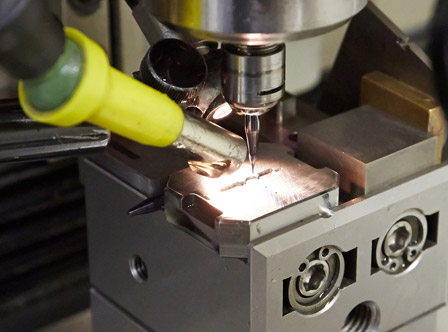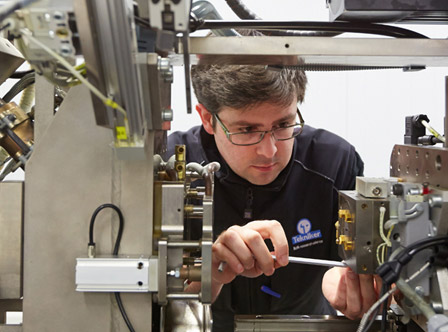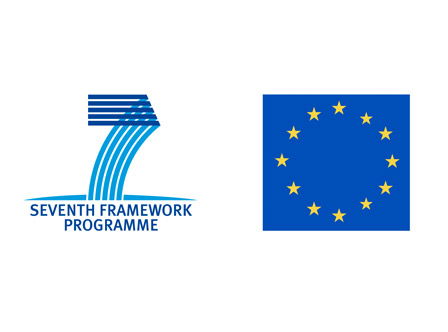PROJECTS
The R&D centre is leading the HINMICO European project, which has a budget of 5.5 million euros and is designed to develop technologies and integrate them into the large-scale production of multi-material and multi-functional microcomponents.
The European Union's industry and institutions have been making a tremendous effort over the last few years to address the global trend towards miniaturization. For companies, this process has posed a number of major challenges, like the large-scale manufacturing of microcomponents. To this challenge is added their potential application in a whole range of industries.
The key unit of action in the research to address these challenges is the multi-material microcomponent; this is the sum of various components of different materials assembled into a single part; it will not be possible, subsequently, to extract the components comprising it without destroying it.
On this premise, the European Union has taken a step forward through HINMICO, an ambitious research project led by IK4-TEKNIKER’s Ultraprecision Processes Unit and funded by a budget of 5.5 million euros. 15 partners are participating in it and they include research centres, including IK4-IDEKO, which belongs to IK4 Research Alliance, universities and companies from seven European countries.
Polymer injection
The project is seeking to develop and integrate various technologies to do with the technique of polymer micro-injection, and large-scale production lines for multi-material and multi-functional microcomponents.
The advances achieved in the research and which are being developed during the project could be applied to all the microcomponents or microparts that are obtained by means of micro-injection processes or their variants: over-moulding and in-mould assembly. That way a commitment is made to achieve a considerable cut in manufacturing costs and, what is of no lesser importance, the possibility of increasing the added value of the product thanks to the fact that additional functionalities are incorporated through the injected material.
According to Joseba Esmoris, IK4-TEKNIKER researcher in charge of the project, such wide-ranging sectors like transport, healthcare or communications are set to benefit directly from the results that are generated during the development of HINMICO.
Integrating technologies
The process to integrate technologies is developed around a core technology like the micro-injection process, which is currently the main process for the mass production of microcomponents. More specifically, the HINMICO project is focusing its efforts not only on the actual microinjection process itself but also on two variants of this technology: over-moulding and in-mould assembly, key elements in the large-scale production of multi-material components.
Around this core the HINMICO project will be going further into the development of production processes through the manufacture of high performance micro-moulds, the safe and accurate handling of the microcomponents throughout the various stages of the process and their on-line monitoring, thus guaranteeing the final quality of the product at all times. Likewise, additional developments and integrations based on back-end process technologies will be made; they will enable the specific functionalization of the microcomponents that require it to be carried out (coatings, laser treatment, the joining of polymers by means of welding, etc.).
The HINMICO project is geared towards obtaining microcomponents that three industrial sectors have been calling for: the mobility and transport, electronics and biomedical sectors.
In the mobility and transport sector, the manufacture of a microactuator by means of micro-injection will be tackled; it acts by controlling the air flow in order to lower aerodynamic resistance, and therefore fuel consumption.
In the electronics sector, a passive microwave component will be manufactured for short-range, high capacity, urban mobile networks. And the healthcare sector will be reflected in the project in applications like the development of a new generation of multi-material dental implants that speed up the patient’s recovery process, and the production of reinforced polymer dental brackets able to withstand the stresses applied to them during the final treatment phases.
This project has received funding from the European Community's Seventh Framework Programme (FP7-2013- NMP-ICT-FOF) under grant agreement n° 609110.






